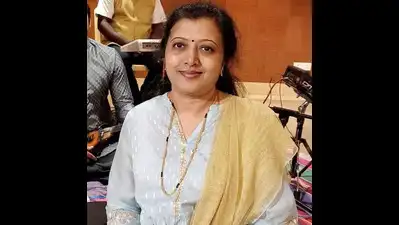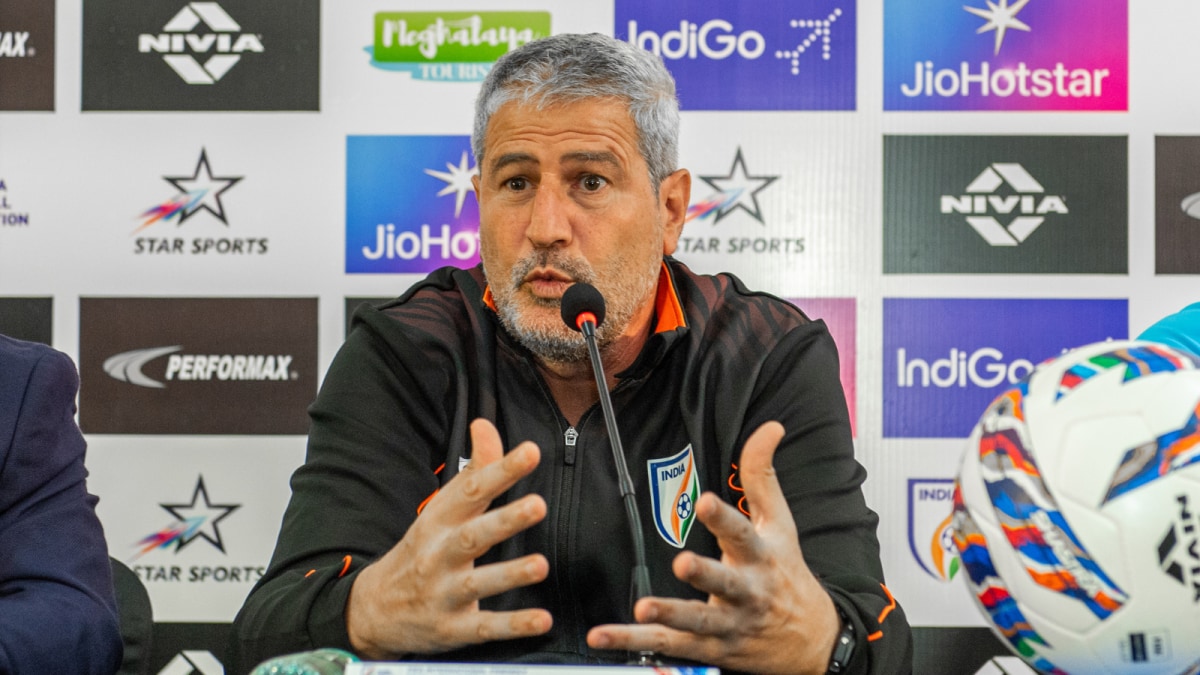ARTICLE AD BOX

In an industry dominated by men, lyricists such as Thamarai are working to bring sensuality and sensibility into songs. And Kollywood, they say, is finally tuning in
In the late 1990s, as a young Thamarai went around Kodambakkam knocking on film studio doors saying she would like to write a song, they’d hear it as ‘sing a song’. “I would repeat that I want to write lyrics, and they’d stare at me as if I were an alien,” says the lyricist, who, regardless, went on to write 500 songs for Tamil cinema in 25 years, out of which at least 100 were hits.She got her first big break with ‘Vaseegara’ from ‘Minnale’ (2001), owing to the fact that director Goutham Vasudev Menon and Harris Jayaraj were also beginners were and all for experiments.
In a way it marked the beginning of an era of women lyricists in Kollywood. “I was in school when ‘Minnale’ was released, and everyone was awestruck by the fact that a woman can also write such fresh and beautiful lyrics. She’s a trailblazer and it made it easy for other women,” says lyricist Parvathy Meera, who has written hits such as ‘Verasa pogayille’, her debut, from ‘Jilla’ (2014) and ‘Medhakudhu kaalu rendum’ from ‘Brother’ (2024).Some of the biggest chartbusters in Kollywood, from ‘Maya nadhi’ (‘Kabali’) by Uma Devi and ‘Enga pona raasa’ (‘Mariyan’) by Kutty Revathy to ‘Ondra randra asaigal’ (‘Kaakha Kaakha’) by Thamarai, were written by women, a phenomenon unique to the Tamil film industry. While Bollywood has a few women lyricists such as Anvita Dutt and Priya Saraiya, even they admit recognition is an uphill battle. “As lyricists, we prioritise poetry and deeper meanings over double entendre,” says Kutty Revathy, lyricist and filmmaker.
“I enjoy writing lyrics over scripts as there is more autonomy.”Also, Tamil literature always had women poets, and will always have them, regardless of whether they come to the fore or not, says Thamarai. “Sangam literature from 200BCE to 200AD had at least 40 prominent women poets in Tamil, who wrote about love and other intense emotions uninhibitedly,” says R Raman, Tamil scholar and principal, Presidency College.
“There was a long break when poetry turned devotional, with few women writers coming to the fore.
But women’s voices returned to the mainstream in the 20th century, in modern poetry and cinema.In the 1990s, a group of talented poets started experimenting with modern poetry, which included the voices of women, dalits and other marginalised sections, he says. “Among them are Salma and Kanimozhi Karunanidhi. While the earlier poets were hesitant to write freely about love, this group wasn’t.
A few switched to cinema.”Parvaty feels that it’s also to do with the Tamil language being more than a tool for communication. “There’s a history and pride associated with it. That just reflected on the women as well.”Tamil cinema had a woman lyricist – T P Rajalakshmi aka Miss Kamala – as early as the 1930s, says film critic G Dhananjayan. “Then came Bhanumathi, who was also a writer and director, in the 1950s. Lyrics by women have always been mature and poetic, as opposed to streaks of regression that creep in, at times, in those by men.”Thamarai wrote lines such as: Vaseegara en nenjinikka/ Un pon madiyil thoongum nenjam (You are the charmer of my heart/ My heart longs to sleep in your golden lap). This, at a time when popular songs such as ‘Kattipudi’ (written by Vairamuthu) had the lines:Yentha idathil sugam inga athigam,...KandippidippaenAntha idathil nandu pidippaen(Wherever the pleasure is highest here,... I’ll surely find it —And in that very spot, I’ll catch the crab.").Also, while men often compare women to flowers or the moon, these lyricists often use a different set of metaphors. In Kutty Revathy’s ‘Nenje ezhu’ the woman is land, sky and wind. “This group of women lyricists write more empowering metaphors symbolising dignity and honesty, rather than comparisons with fragile feminine objects. An example is ‘Minikki minikki’ by Umadevi from ‘Thangalan’,” says Dhananjayan.“Even when I had no opportunities, I had strict conditions – no obscenity, no mixing of English and Tamil words,” says Thamarai, now 59 years old.
“Songs last long after films are forgotten. I had a clear vision of the values I wanted to project through my art. I think 200 times before writing each word.”Challenges were many, as even after she became famous, people initially thought she could write only women’s versions and soft songs. “I wanted to prove I could write men’s versions too and wrote hero introduction songs which also clicked.”Thamarai was a mechanical engineer and had worked as the only woman among groups of men for years, which helped her navigate a world dominated by men, she says.At the same time, writing is going through a sea change for those of all genders, say lyricists. “The younger generation doesn’t understand simple Tamil words, yet they are the creators of films and music. There is no demand for rich language and poetry,” says Thamarai. “Once a director told me, ‘I wish I could work with you, but I can’t because you write good Tamil’,” says Parvathy.There are many more talented women lyricists in Tamil Nadu, but they don’t get the right opportunities, says Prabha Gurumurthy, singer and voice-over artist.
“Something like a talent show should be held for lyrics as well, where contestants can display their skills impromptu, just like for singing.”Kutty Revathy hits Enga pona raasa (2013) Nenjae ezhu (2013) Aayiram aayiram (2015) Thoonga kangal (2015) Aahaa (2021)Parvathy Meera hits Verasa pogayille (2014) Kannukkul pothivaippen (2014) Yaaro ival (2014) Edhedho ennam vandhu (2014Uma Devi hits Naan nee naamvaazhave (2014) Maya nadhi (2016) Veera thurandhara (2016) Adi vaadi thimiraa (2017) Anbae peranbae (2019)Thamarai hits Vaseegara (2001) Ondra renda (2003) Suttum vizhi (2005)Nenjukkul peidhidum (2008)
| Of the nearly 400 lyricists registered with the Indian Performing Right Society, only four are women — Na Viveka, lyricist |
Email your feedbackto [email protected]



.png)
.png)
.png)
















 6 hours ago
5
6 hours ago
5









 English (US) ·
English (US) ·